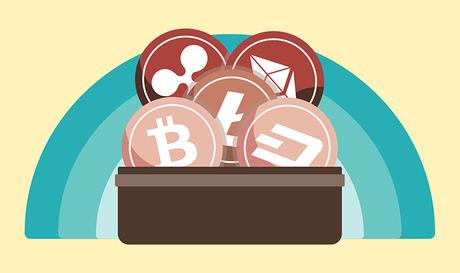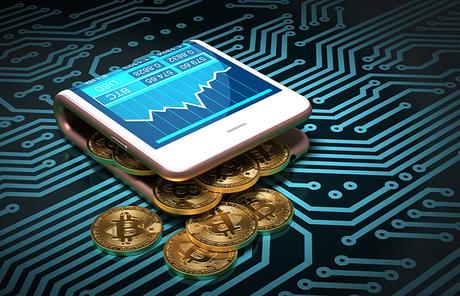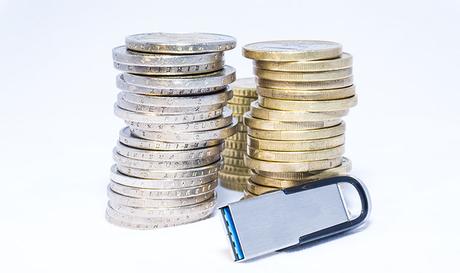What is a digital wallet?
A digital wallet (or e-wallet) is a virtual storage of someone’s payment and identification information for various payment systems. Digital wallet allows people to streamline purchase process on dedicated services and can also be used together with mobile payment systems. A recent example is Apple Pay on the iPhone.
Crypto wallets are unlike the regular e-wallets. There are differences between the different types so we investigate the options available.
How do cryptocurrency wallets work?
This is where we start to lose a grip on reality. Literally, there are no physical coins. What’s in the wallet is the private key, a line of code which holds the information of what you have bought. Then, receive a public key that you use to exchange cryptocurrency. To give an analogy; it’s like an email account. The email address is the public key that you give to everyone, your password is the private key. The one difference is while anyone can send an email to your address, it is only you who can access the details of the sent emails.
To summarise:
- Only your private and public keys are stored and synced with the blockchain
- Public and private keys must match for the transaction to be successful
Different types of crypto wallets

There are two main types of cryptocurrency wallets – Online/hot/soft and offline/cold/hard but these can be subdivided into:
Desktop wallet
Desktop crypto wallets are downloaded software from a coin’s official site and install it on your laptop/desktop. The only threat to your coins in such a wallet is if someone takes control of your computer physically, or your software gets attacked by a hack or virus.
Advantages
- You have full control of your private keys
- Easy to use
- You can have various backups for security
Disadvantages
- If you lose your hardware, you could lose the currency
- Could be affected by malware or viruses as its exposed when connected to the internet
- You only have access to your coins when you have your computer
Online Wallet
Online wallets are convenient as they are typically apps and for most, allow access to your coins anywhere at any time. One issue is the control. The platform can close down with all your coins. As you wouldn’t take your whole bank accounts value with you in your wallet now, you shouldn’t have all coins or tokens with you in one place.
Advantages
- You can access your coins anywhere for transactions subject to an internet connection
- Easy to set up
- Most exchanges are very secure with their two-factor authentication
Disadvantages
- Hackers will always be a credible threat
- If an exchange collapses or is hacked, you are likely to lose all your coins
Mobile Wallets
A mobile wallet is a cryptocurrency wallet purely in/on your smartphone. You need to download a specific software or application from the official site of the coin you want to store. Most have one to compliment there online offering.
Advantages
- You can use your coins anywhere as long as you have your phone
- Comes with additional security features like QR code scanning
Disadvantages
- Your phone is always vulnerable to malware and viruses
- If you lose your phone and haven’t backed up your security features, you lose your cryptocurrency
Hardware wallet
Hardware wallets are incredibly safe and the best. They aren’t connected to the internet, hackers cannot have access to your coins. Some of these wallet’s cryptos are so advanced that you can transfer and receive coins without having to connect to the internet. Even some sophisticated wallets have digital displays, not even requiring you to connect them to a computer.
Advantages
- Very secure as they are not connected to the internet
- You can receive coins in some without having to use a computer
- Ideal for storing large amounts of digital currency without the risk
- Have a backup security in form of a USB
Disadvantages
- You have to have them physically to use your coins
- Complex for beginners
- Expensive at over $100
Paper wallets
Its old school, something your gran would do and prefer. You generate a code that you print onto papers and keep them safe. These papers have both your private and public keys. You can simply swipe the codes or copy them manually when you want to transact. Ironically, the safest and most secure – and cheapest.
Advantages
- Secure and not prone to hackers
- Very easy to generate
- Cheap
Disadvantages
- The papers can be stolen
- If something happens to the paper users may lose all their coins
How safe are cryptocurrency wallets?

Cryptocurrency wallets security does depend on the type of wallet and the user. As a rule, the more easy and convenient to use, the more vulnerable to hacking attacks.
Offline wallets like hardware and paper wallets are very secure because as mentioned they are never connected to the internet.
If you want to add a layer of security to your digital coins, here is what you need to do;
- You can add an encryption code. This is a master code that secures the private keys. A hacker has to bypass or crack this code to access your coins in your wallet. Check if your wallet has a two-factor authentication (2FA). This is an added security feature that requires you to use your phone to receive codes for verification. PIN codes are also important as they add a layer of security – don’t use your bank code!
- It is very important to backup your wallet be it a cold or hot storage. Ensure that you write the 12-word backup phrase and keep it in a safe place. In the case where you lose your password, or your device is compromised, you can always access your wallet and secure it using your backup option.
- Always keep the software in your wallet updated. Updating your wallet increases your security level as technology changes rapidly this day. Yes, it’s annoying to change but it might be easily hacked as it may have the same bugs or present loopholes to hackers.
Cryptocurrency wallet fees and costs
Digital coin wallets have no fixed fee. If you are using an online wallet linked to an exchange, you might be required to pay commission for that particular service. Some exchanges charge when you transfer coins from their platform to a different wallet as a “deposit” or “withdrawal” fee.
For any transaction to take place on the blockchain, the peers on the network have to be incentivized for them to add a transaction on the blockchain. These are the rewards that the miners get. Wallets have to be confirmed by the network of the particular digital coin. This applies to both personal wallets as well as those held or those connected to an exchange. The charges, in this case, will depend on that particular network. Keep it simple and mainstream, most are free.
Are cryptocurrency wallets anonymous?

Most wallets are stored publicly on the blockchain. A few wallets like Jaxx, Samourai, and Multibit are partially anonymous. Users are never asked for their email addresses or any other personal information.
Despite these wallets’ attempt to keep you anonymous, you still have to transact. All transactions are recorded on a public ledger and can be traced back to the source, albeit after bypassing some security measures.
Though it is still difficult to obtain complete anonymity, developers are working hard to ensure its possibility.
Summary: Top things to consider
It is not possible to determine the best crypto wallet. Choosing a wallet will depend on the following factors:
- The digital coin you intend to store
- Whether it’s cold or hot storage
- The amount of coins you want to keep
- If you wish to keep different coins in the same wallet
- How often you wish to use the coins
- Convenience of access
- Your personal perception of risk and attachment to the coins.

